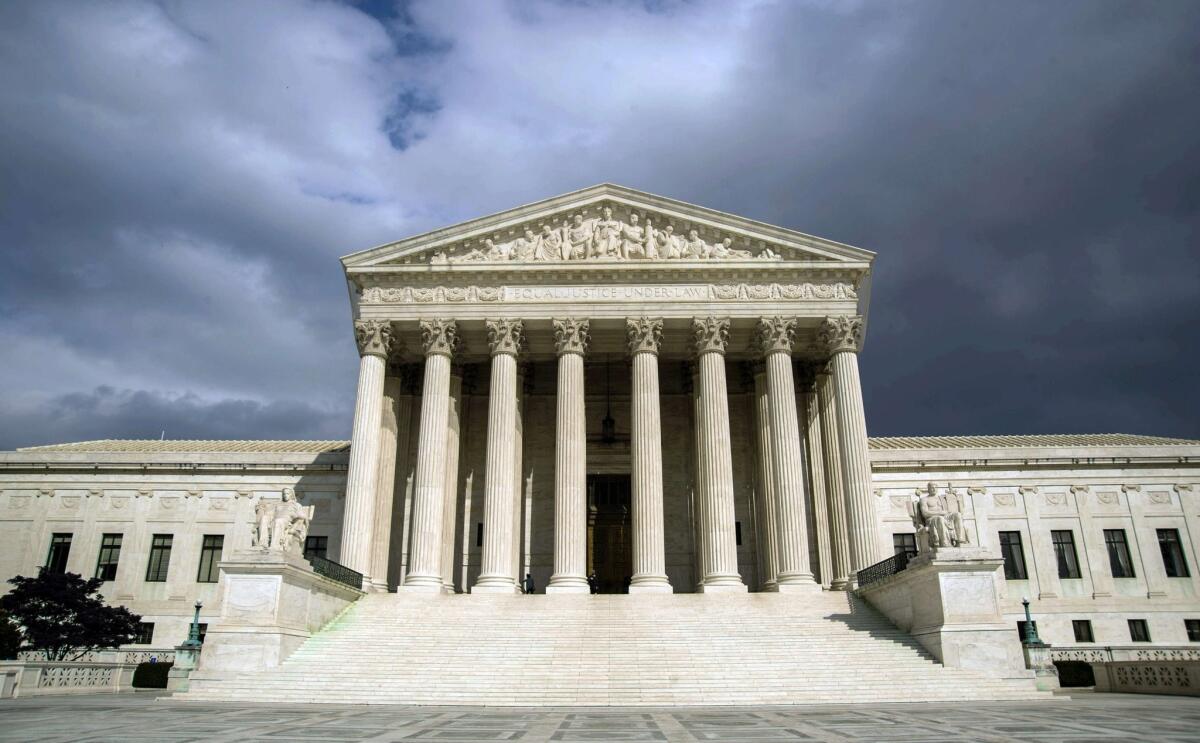Supreme Court says ‘untainted’ assets of fraud suspects can be unfrozen, used to defend self

The U.S. Supreme Court building is seen in this March 31, 2012, file photo on Capitol Hill in Washington, D.C.
- Share via
Reporting from Washington — People charged with fraud have a right to spend their own “untainted” money to hire a lawyer, the Supreme Court ruled Wednesday.
The 5-3 decision strengthens the Constitution’s protection for the right to counsel when someone is fighting the government in court.
“How are defendants whose innocent assets are frozen in cases like these supposed to pay for a lawyer?” asked Justice Stephen G. Breyer.
The decision set aside an order from a federal judge in Miami who froze all the assets of Sila Luis, a woman who was charged with a $45 million Medicare fraud.
Prosecutors alleged her healthcare companies had overbilled Medicare for services that were not needed or not provided. And they said she was transferring money to relatives and to shell corporations so that nothing would be left if she were convicted.
But Breyer said the defendant had $2 million in separate assets, and she has a right to use her “innocent” and “untainted” funds for her legal defense. This money “belongs to the defendant, pure and simple. In this respect, it differs from a robber’s loot, a drug seller’s cocaine, a burglar’s tools or other property associated with the planning, implementing or concealing of a crime,” he said.
In the past, the court has ruled that the government may seize all of a drug dealer’s assets prior to a trial even if that leaves no money to pay for a lawyer.
But Wednesday’s ruling in Luis vs. United States puts a limit on such seizures. “It is a difference between what is yours and what is mine,” Breyer explained, and as long as the defendant can show she has funds that were not tainted by the alleged crime, she has a right to use them in her own defense.
The case led to an unusual split. Chief Justice John G. Roberts Jr. and Justices Ruth Bader Ginsburg and Sonia Sotomayor agreed with Breyer. Justice Clarence Thomas agreed but in a separate opinion.
In dissent, Justice Anthony M. Kennedy called the ruling a victory for “sophisticated criminals who know how to make criminal proceeds look untainted.” They can move money around “to disguise the origins of their funds,” he said. And if convicted, none of the ill-gotten gains will be left, he said. Justice Samuel A. Alito Jr. joined with Kennedy. Justice Elena Kagan filed a separate dissent agreeing with Kennedy.
Because the decision is based on the U.S. Constitution, it extends broadly to state and federal courts.
On Twitter: @DavidGSavage
More to Read
Sign up for Essential California
The most important California stories and recommendations in your inbox every morning.
You may occasionally receive promotional content from the Los Angeles Times.











